







As Atlas University Medicine Hospital, in our 25th year, we start by welcoming you at the airport with VIP vehicles and accompany you throughout the entire process. When you return to your country after the surgery, we are always available by phone for all your questions. You will receive 24/7 support at the hospital during your stay, and we do our best to ensure that you rest in a 5-star hotel during your recovery period until your post-hospital check-up day
Our Specialities
Cervical, Thoracic and Lumbar Disc Surgery (endoscopic/microsurgery)
Far lateral (non-canal) lumbar disc surgery (lateral microsurgical approach)
Neurovascular surgery
Cerebrovascular diseases (vascular diseases of the brain)
Aneurysms
Arteriovenous malformations
Cavernomas
Neuro-oncological surgery
Brain tumors
Glial tumors
Meningiomas
Pituitary gland tumors
Metastatic brain tumors
Skull base tumors
Pontocerebellar angle tumors
Pineal tumors
Intraventricular tumors
Spinal disease surgery
Cervical, thoracic and lumbar spine fractures
Spine and spinal cord tumors
Scoliosis
Degenerative spine diseases
Peripheral nerve disease surgery
Peripheral nerve tumors
Entrapment neuropathies
Carpal tunnel syndrome
Ulnar groove syndrome
Tarsal tunnel syndrome
Functional neurosurgery and pain surgery
Trigeminal neuralgia
Microvascular decompression
Epilepsy surgery
Spasticity surgery
Epiduroscopic interventions
Hydrocephalus surgeries
Endoscopic 3rd ventriculostomy
VP shunt surgeries
LP shunt surgeries
Developmental anomalies
Meningomyelocele
Tethered cord syndrome
Arachnoid cyst
Craniosynostosis surgeries
Chiari malformation
Head trauma
Subdural hematomas
Intracerebral hematomas
What procedures are available at Atlas University Medicine Hospital?
How many medical staff are there at Atlas University Medicine Hospital and what accreditations do they have?
A diagnosis of a brain tumor can be a life-altering event which is why it’s essential to understand what the Brain Tumor Surgery involves. The main objective of this procedure is to remove all or as much of the tumor as safely possible without impacting any surrounding vital structures. Factors such as the location, size, and type of tumor, as well as the patient's overall health, will influence the specifics of the surgery. Patient's are usually sedated during the procedure, which involves removing a section of the skull to gain access to the tumor. Neuro-navigation tools are then used to pinpoint the tumor's location and guide the removal process. Post-surgery, the skull section is replaced and the site is stitched up.
Moreover, it's important to note that prior to the surgery, you will undergo various tests - such as neurological exams, imaging tests, and possibly a biopsy- to better understand the tumor. After the surgery, follow-up appointments are necessary to monitor recovery and assess the need for further treatment, like radiation therapy or chemotherapy. Consultation with healthcare professionals would help in gaining a more comprehensive understanding of what the procedure in Istanbul entails.
Recovering from Brain Tumor Surgery entails a comprehensive process that may continue for weeks or possibly months. The primary recuperation from the surgery itself might take around 4-6 weeks, during which fatigue, discomfort, and some cognitive changes may be observed. Symptoms after the surgery, such as headaches, nausea, and walking difficulties, might be experienced and can typically be controlled with medication.
The success rate of Brain Tumor Surgery procedures is largely based on factors like the tumor's size, locality, and type, as well as the patient's general health. Surgery can be deemed successful if it results in alleviating symptoms, decelerating disease progression, or entirely removing the tumor. Nevertheless, it's crucial to comprehend that success isn't solely gauged by the tumor's eradication but should also consider the conservation of neurological functionality and the quality of life.
Long-term survival rates, a frequent assessment of success, vary based on the peculiar type of tumor and the patient's overall health. Consequently, it becomes vital to engage in a dialogue with your healthcare provider about prognosis, anticipated results, potential risks, and the possibility of the disease recurring.
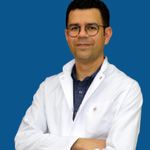

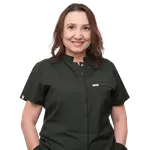
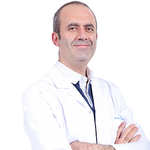
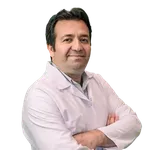

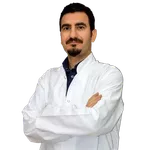
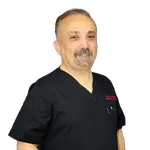




As Atlas University Medicine Hospital, in our 25th year, we start by welcoming you at the airport with VIP vehicles and accompany you throughout the entire process. When you return to your country after the surgery, we are always available by phone for all your questions. You will receive 24/7 support at the hospital during your stay, and we do our best to ensure that you rest in a 5-star hotel during your recovery period until your post-hospital check-up day
Our Specialities
Cervical, Thoracic and Lumbar Disc Surgery (endoscopic/microsurgery)
Far lateral (non-canal) lumbar disc surgery (lateral microsurgical approach)
Neurovascular surgery
Cerebrovascular diseases (vascular diseases of the brain)
Aneurysms
Arteriovenous malformations
Cavernomas
Neuro-oncological surgery
Brain tumors
Glial tumors
Meningiomas
Pituitary gland tumors
Metastatic brain tumors
Skull base tumors
Pontocerebellar angle tumors
Pineal tumors
Intraventricular tumors
Spinal disease surgery
Cervical, thoracic and lumbar spine fractures
Spine and spinal cord tumors
Scoliosis
Degenerative spine diseases
Peripheral nerve disease surgery
Peripheral nerve tumors
Entrapment neuropathies
Carpal tunnel syndrome
Ulnar groove syndrome
Tarsal tunnel syndrome
Functional neurosurgery and pain surgery
Trigeminal neuralgia
Microvascular decompression
Epilepsy surgery
Spasticity surgery
Epiduroscopic interventions
Hydrocephalus surgeries
Endoscopic 3rd ventriculostomy
VP shunt surgeries
LP shunt surgeries
Developmental anomalies
Meningomyelocele
Tethered cord syndrome
Arachnoid cyst
Craniosynostosis surgeries
Chiari malformation
Head trauma
Subdural hematomas
Intracerebral hematomas
What procedures are available at Atlas University Medicine Hospital?
How many medical staff are there at Atlas University Medicine Hospital and what accreditations do they have?














As Atlas University Medicine Hospital, in our 25th year, we start by welcoming you at the airport with VIP vehicles and accompany you throughout the entire process. When you return to your country after the surgery, we are always available by phone for all your questions. You will receive 24/7 support at the hospital during your stay, and we do our best to ensure that you rest in a 5-star hotel during your recovery period until your post-hospital check-up day
Our Specialities
Cervical, Thoracic and Lumbar Disc Surgery (endoscopic/microsurgery)
Far lateral (non-canal) lumbar disc surgery (lateral microsurgical approach)
Neurovascular surgery
Cerebrovascular diseases (vascular diseases of the brain)
Aneurysms
Arteriovenous malformations
Cavernomas
Neuro-oncological surgery
Brain tumors
Glial tumors
Meningiomas
Pituitary gland tumors
Metastatic brain tumors
Skull base tumors
Pontocerebellar angle tumors
Pineal tumors
Intraventricular tumors
Spinal disease surgery
Cervical, thoracic and lumbar spine fractures
Spine and spinal cord tumors
Scoliosis
Degenerative spine diseases
Peripheral nerve disease surgery
Peripheral nerve tumors
Entrapment neuropathies
Carpal tunnel syndrome
Ulnar groove syndrome
Tarsal tunnel syndrome
Functional neurosurgery and pain surgery
Trigeminal neuralgia
Microvascular decompression
Epilepsy surgery
Spasticity surgery
Epiduroscopic interventions
Hydrocephalus surgeries
Endoscopic 3rd ventriculostomy
VP shunt surgeries
LP shunt surgeries
Developmental anomalies
Meningomyelocele
Tethered cord syndrome
Arachnoid cyst
Craniosynostosis surgeries
Chiari malformation
Head trauma
Subdural hematomas
Intracerebral hematomas
What procedures are available at Atlas University Medicine Hospital?
How many medical staff are there at Atlas University Medicine Hospital and what accreditations do they have?
CONTACT SUCCESSFUL